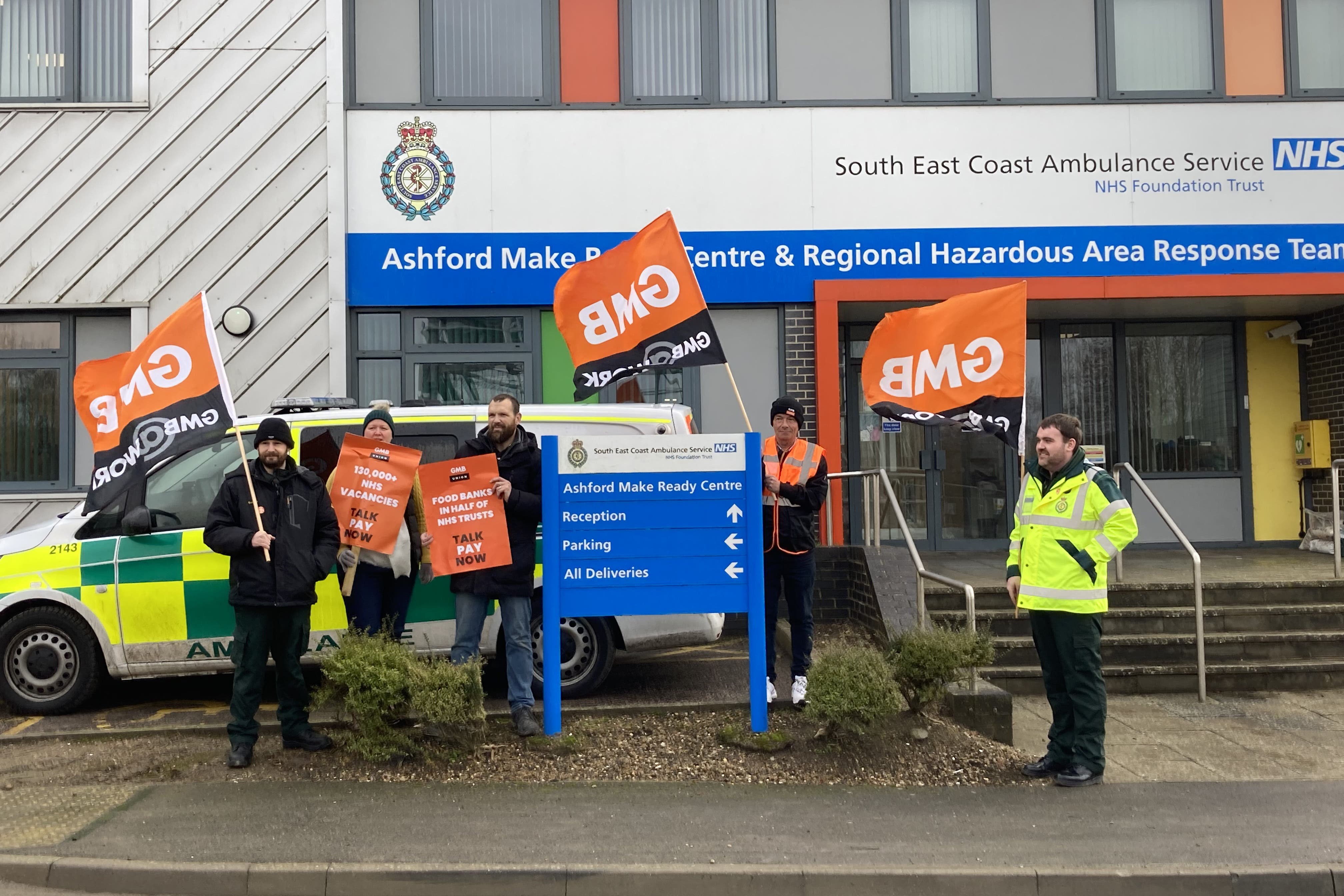Paramedics: Strikes are last resort as no-one is taking us seriously
One ambulance worker described as ‘excruciating’ the pressure faced by health trusts.

Your support helps us to tell the story
From reproductive rights to climate change to Big Tech, The Independent is on the ground when the story is developing. Whether it's investigating the financials of Elon Musk's pro-Trump PAC or producing our latest documentary, 'The A Word', which shines a light on the American women fighting for reproductive rights, we know how important it is to parse out the facts from the messaging.
At such a critical moment in US history, we need reporters on the ground. Your donation allows us to keep sending journalists to speak to both sides of the story.
The Independent is trusted by Americans across the entire political spectrum. And unlike many other quality news outlets, we choose not to lock Americans out of our reporting and analysis with paywalls. We believe quality journalism should be available to everyone, paid for by those who can afford it.
Your support makes all the difference.Paramedics on the picket line have told how lengthy ambulance waits are getting “worse by the day” and they insisted strikes are a last resort as “no-one is taking us seriously”.
Wednesday’s walkout saw ambulance workers and paramedics take industrial action over pay and conditions, in the first such move in a generation.
One ambulance worker described as “excruciating” the pressure faced by trusts – most of which in England have declared critical incidents this week, meaning they are facing such disruption that the environment might not be considered safe and patients might come to harm.
Many of the critical incidents were declared before the strike started, with one senior health adviser for a local 111 service in Kent saying a huge issue is lack of staff, meaning “the pressure is constantly on”.
Passing vehicles honked in support of those on strike across the country, while pork pies were delivered to picket lines along with alcohol-free beers.
Despite the action, many striking members said they would leave their picket line to attend emergency calls, with such a situation unfolding in Cardiff early into the industrial action.
The GMB union’s South West and Wales representative tweeted a video of himself alone at Pentwyn service station less than an hour into the day-long walkout – saying all striking members had to be called away from the picket line on emergency calls.
Every shift feels like a strike because most of the time we’re not responding to calls
Nathan Holman said: “Just shows, we’re still responding to the public.”
But a former Royal Marine who now works for the Welsh Ambulance Service said he had made the “difficult decision” not to follow suit.
Harry Maskers, 34, from Cardiff, said: “I won’t be responding to critical calls, like many of my colleagues who are doing the same.
“All the calls we respond to on a day-to-day basis are critical anyway, so personally I feel that if you come in and do the derogations nothing really changes.
“Every shift feels like a strike because most of the time we’re not responding to calls.
“A lot of the time I’ll sign on to an ambulance and the first job of the day is to go down to the hospital, relieve the night or day crew, and then I will spend my whole shift outside the hospital.”
Paramedic Ryan Carruthers, who stood outside West Midlands Ambulance Service’s hub in Coventry, said while many in his profession are struggling with heating and food bills, his main reasons for striking are that patients deserve better treatment, coupled with issues over a lack of funding and staff.
The 23-year-old insisted Wednesday’s action is a last resort: “Obviously it’s not what we wanted but this is what we have to do.
“We deserve better pay and better working conditions. I feel it’s the only way for it to get the attention it deserves. No-one is taking us seriously.
“It’s been going on for a very long time and still nothing has changed.”
A colleague at the same site described the situation facing many ambulance trusts as “getting worse and worse by the day”.
Student paramedic Sam Catcliffe said: “We needed to take action to get our voice and point across. Hopefully something gets resolved from it.”
At the Ashford Make Ready Centre in Kent where South East Coast Ambulance Service workers are striking, one staff member who did not want to be named said: “It’s so busy, it’s excruciating and it’s not fair on the patients.
“We’re busy now because of Strep A, 111 is inundated and the people that are suffering are the patients.”
Outside the hub in Coventry, Unite union representative Steve Thompson said the walkout is about trying to retain and improve services, as well as pay.
Mr Thompson said of the Government: “This is about telling them that we are not going to allow it (a deterioration in services) to happen. We are not going to roll over.”
Stuart Fegan, the GMB union’s senior organiser for south London and Surrey, said public support for the strike has been “absolutely overwhelming”.
He added: “I’ve been an official for the GMB for 25 years and I’ve never actually seen this level of public support for a group of striking workers.”